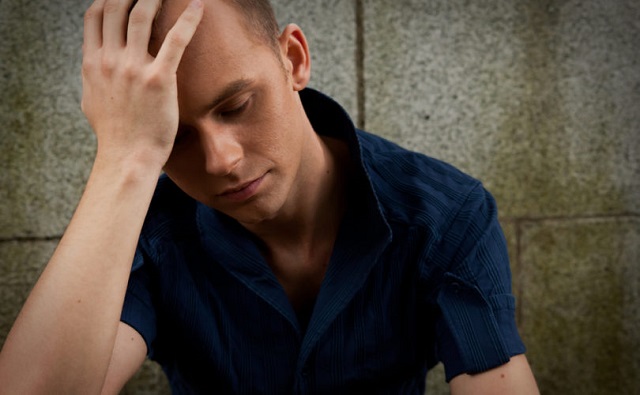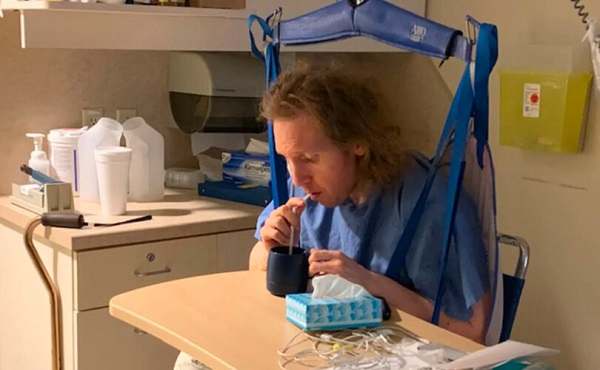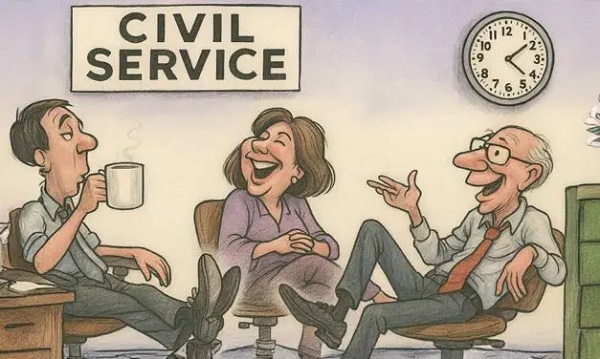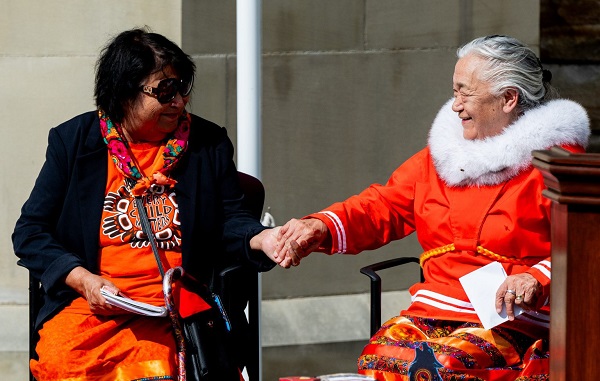Great Reset
World Happiness Report ranks Canada as one of the unhappiest places in the West for young people

From LifeSiteNews
While senior Canadians seems to be mostly happy in Canada, young Canadians may be beginning to feel the negative effects of the Trudeau government’s overspending, onerous climate regulations, lax immigration policies and ‘woke’ politics.
A recent report has ranked Canada as one of the unhappiest places in the West for people in their 20s.
According to the World Happiness Report, published March 8, Canada was listed as the 58th happiest country out of 143 for people under the age of 30, a trend that coincides with the long-reign of the Trudeau government in which the cost-of-living has exploded.
“Happiness fell significantly in the country group including the United States, Canada, Australia and New Zealand, by twice as much for the young as for the old,” the report noted.
According to the report, Canada ranked behind many Western countries, including the United Kingdom (32nd), Italy (41st), Poland (43rd), Germany (47th), France (48th), and even South Korea (52nd), which is well known for its high suicide rate. However, the United States ranked even lower than Canada at 62nd.
The report, published by Gallup, the Oxford Wellbeing Research Centre, the UN Sustainable Development Solutions Network, and the WHR’s Editorial Board, found that senior Canadians were much happier than young Canadians.
Canadians over 60 were ranked as the 8th happiest in the world for their age group, a trend which placed Canada at 15th for the total population’s overall happiness ranking.
While senior Canadians seems to be mostly happy in Canada, young Canadians may be beginning to reap the effects of the policies of Prime Minister Justin Trudeau’s government, which has been criticized for its overspending, onerous climate regulations, lax immigration policies, and “woke” politics.
In fact, many have pointed out that considering the rising housing prices, most Canadians under 30 will not be able to purchase a home.
Similarly, while Trudeau sends Canadians’ tax dollars oversees and further taxes their fuel and heating, Canadians are struggling to pay for basic necessities including food, rent, and heating.
A September report by Statistics Canada revealed that food prices are rising faster than the headline inflation rate – the overall inflation rate in the country – as staple food items are increasing at a rate of 10 to 18 percent year-over-year.
Additionally, a recent poll revealed that seven out of 10 Canadians believe the country is broken and that the Trudeau government does not focus on issues that matter.
While happiness in young people is down in Canada, euthanasia in Canada has skyrocketed in recent years. The most recent reports show that Medical Assistance in Dying (MAiD) is the sixth highest cause of death in Canada.
However, it was not listed as such in Statistics Canada’s top 10 leading causes of death from 2019 to 2022. When asked why MAiD was left off the list, the agency explained that it records the illnesses that led Canadians to choose to end their lives via euthanasia, not the actual cause of death, as the primary cause of death.
According to Health Canada, in 2022, 13,241 Canadians died by MAiD lethal injections. This accounts for 4.1 percent of all deaths in the country for that year ,a 31.2 percent increase from 2021.
While the numbers for 2023 have yet to be released, all indications point to a situation even more grim than 2022.
Censorship Industrial Complex
Winnipeg Universities Flunk The Free Speech Test

From the Frontier Centre for Public Policy
By Tom Flanagan
Frances Widdowson faced mob hostility for saying unmarked graves have yet to be proven
Dr. Frances Widdowson’s visit to Winnipeg on Sept. 25 and 26 should have been an opportunity for debate. Instead, the city’s universities endorsed a statement that undermines academic freedom.
Widdowson, a political scientist known for questioning official narratives about residential schools, came to meet students who wanted to ask about claims of “unmarked graves.” Those claims, which became national headlines in 2021 after ground-penetrating radar surveys at former school sites, remain unproven because no physical evidence of burials has been found.
For many Canadians, the claims of “unmarked graves” were a shocking revelation, given how widely the story was reported as a settled fact.
That context alone should have been enough to spark discussion. Instead, the University of Manitoba and the University of Winnipeg joined the Assembly of Manitoba Chiefs in issuing a statement that should embarrass both schools. At institutions dedicated to study and inquiry, the instinct should be to ask more questions, not to shut them down.
At first, the statement sounded reasonable. It said the universities did not “condone violence or threats to anyone’s safety.” But that did not stop Widdowson from being roughed up by a mob at the University of Winnipeg. It would be refreshing if the universities condemned mob violence with the same urgency they condemned a professor answering questions. Their silence sends its own message about which kind of behaviour is tolerated on campus.
The bigger problem is the statement’s claim that there is a single “truth” about residential schools, known to “survivors,” and that questioning it amounts to “denial.” In reality, 143 residential schools operated with federal support for more than a century. What happened varied widely from place to place and decade to decade.
That is a subject for historical research, grounded in evidence and debate, not pronouncements about capital-T “Truth” issued by communications offices. Canadians deserve to know that history is still being studied, not declared untouchable.
Worse still was the statement’s promise to “press the Government of Canada to enact legislation that makes residential school denialism a crime.” The Assembly of Manitoba Chiefs is free to say what it wants. But universities lending their names to a demand that historical inquiry be criminalized is beyond misguided; it is dangerous.
Criminalizing “denialism” would mean that even challenging details of the residential school record could be punishable by law. Canadians should think carefully before accepting laws that turn historical debate into a criminal offence.
The University of Chicago’s widely praised statement on academic freedom puts it well: “the University’s fundamental commitment is to the principle that debate or deliberation may not be suppressed because the ideas put forth are thought by some or even by most members of the University community to be offensive, unwise, immoral, or wrong-headed. It is for the individual members of the University community, not for the University as an institution, to make those judgments for themselves.” That principle should also guide Canadian universities. Academic freedom is not a luxury; it is the foundation of higher education.
Worst of all, these positions were not even issued in the names of presidents or academic leaders. They were issued under “media relations.” Imagine being a serious scholar or scientist at one of these universities and discovering that the media office had taken a political stance on your behalf.
I know how I would feel: undermined as a professional and silenced as a citizen.
Tom Flanagan is a professor emeritus of political science at the University of Calgary and a Fellow of the Royal Society of Canada. He is a senior fellow at the Frontier Centre for Public Policy and co-editor of the best-selling book Grave Error: How the Media Misled Us (and the Truth about Residential Schools).
Health
Disabled man needs help as hospital continues to pressure him with assisted suicide

From LifeSiteNews
Roger Foley has been pressured to consider euthanasia while being denied adequate care, prompting a new campaign to cover his medical costs and support his fight to return home.
Roger Foley, an Ontario man, has been forced to turn to charity after being denied sufficient care from hospitals which continue to push euthanasia on him.
On September 30, the Life Care Network launched a LifeFunder to cover medical costs for Roger Foley, a disabled Canadian who is struggling to receive support in an Ontario hospital which is encouraging him to end his life with Medical Assistance in Dying (MAiD).
“Hospital staff have repeatedly offered and pressured me to consider Canada’s infamous assisted suicide program Medical Assistance in Dying (MAiD) while simultaneously obstructing the very services and supports I need to live safely,” Foley revealed in a write-up for the fundraiser.
“Despite my condition, I have fought tirelessly for my rights, dignity, and the ability to return to the community,” he continued.
Foley, who is well known for speaking out against the injustice of Canada’s euthanasia regime, suffers from spinocerebellar ataxia, an incurable brain disease that makes it difficult to move.
As a result of his, he requires caregivers to assist him in eating, drinking, and getting up. According to Foley, his caregivers mistreated him while caring for him at his home. In 2016, Foley was admitted to the London Health Sciences Centre (LHSC) in Ontario for food poisoning and has been there ever since.
Foley revealed that over the past nine years he has repeatedly been offered MAiD despite his desire to be released from the hospital and return home with the help of caregivers.
In May, Foley began enduring even more pain when the LHSC switched out the amber lights in his room for bright bulbs. Foley, who is light sensitive, is now in so much pain that he is unable to be lifted for meals.
“I can only tolerate fluids for a few minutes at a time using makeshift taped-together ski goggles. I am unable to eat solid food or take oral medications,” Foley explained.
“I live in constant pain, severe fatigue, and cognitive decline from dehydration and lack of sleep,” he continued. “Staff continue to impose arbitrary and unsafe ‘rules,’ including denying me side rails during transfers and barging in with bright lights – despite knowing it causes me extreme harm.”
Now Foley is seeking private funding for a Personal Support Worker to assist him with feeding, medication, hydration, and basic hygiene support. Life Care Network, an organization which assists vulnerable Canadians at risk for MAiD, has intervened to raise the necessary funds for Foley’s care.
In an interview with LifeSiteNews, Lino DeFacendis, founder and CEO of Life Care Network, stressed the importance of defending Foley from a medical system which appears to prioritize ending his life with MAiD over providing proper care.
“There needs to be a re-awakening that every life is precious and must be treated with true dignity and compassion no matter how difficult the circumstance,” DeFacendis said.
“Killing oneself via MAiD is never the answer to one’s problems,” he declared.
To support Foley’s medical care, please visit his LifeFunder page.
-

 Alberta2 days ago
Alberta2 days agoJason Kenney’s Separatist Panic Misses the Point
-

 Automotive2 days ago
Automotive2 days agoBig Auto Wants Your Data. Trump and Congress Aren’t Having It.
-

 espionage1 day ago
espionage1 day agoStarmer Faces Questions Over Suppressed China Spy Case, Echoing Trudeau’s Beijing Scandals
-

 Business16 hours ago
Business16 hours agoDaily Caller EXCLUSIVE: Chinese Gov’t-Tied Network Training Illegal Immigrants To Drive Big Rigs In US
-

 Business16 hours ago
Business16 hours agoLabour disputes loom large over Canadian economy
-

 Energy15 hours ago
Energy15 hours agoOttawa must eliminate harmful regulations to spur private investment in pipelines
-

 Business10 hours ago
Business10 hours agoCarney’s Bungling of the Tariff Issue Requires a Reset in Canada’s Approach to Trump
-

 Censorship Industrial Complex10 hours ago
Censorship Industrial Complex10 hours agoWinnipeg Universities Flunk The Free Speech Test






